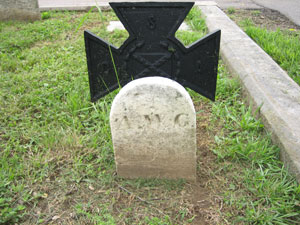Gould, A. W.
Section 10 Footstone “A. W. G.”
Footstone ID # 100020
Significant Persons in A. W. Gould’s Life*
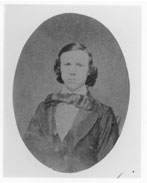
Andrew Willis Gould from an 1860 photograph taken while he was a student at Cumberland University in Lebanon, Tennessee
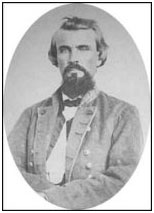
General Nathan Bedford Forrest during the early part of the war. Forrest’s hot temper would cost him a valuable young officer
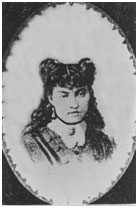
Alice Hoge of Mt. Pleasant, Tennessee,
the fiance of Wills Gould
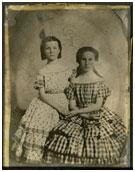
The Galloway sisters, Annie and Laura, in whose house General Forrest always stayed while in Columbia
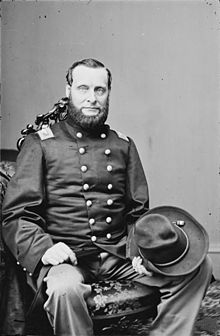
Colonel Abel Streight whose men captured
Gould’s artillery
*Courtesy of Cumberland University
561a The Forrest-Gould Affair
Captions and photos – Bob Duncan
Archives
ITEMS FROM THE SOUTH.; Correspondence of the Philadelphia Inquirer. NOMINATION FOR GOVERNOR OF TENNESSEE. NOMINATIONS FOR THE REBEL CONGRESS. HARVEST IN THE SOUTH. THE FORREST DIFFICULTY. REVIVAL IN BRAGG’S ARMY. BRAGG STILL SENDING AWAY HIS TROOPS.
Published: June 28, 1863
MURFREESBORO’, Monday, June 22.
On last Wednesday the Tennessee Confederates held a convention at Winchester, and proceeded to nominate Hon. ROBERT CARUTHEES as candidate for the office of Governor.
The Chattanooga Daily Rebel, of last Friday, lying before me, says “he is one of the most experienced of our public men, and at the same time one of the most eminent.”
Judge CARUTHERS has been a public man for twenty-five years, and belonged to the old Whig party. He is represented to have been a devoted adherent to “the Union as it was,” bat espoused the cause of the South on the outbreak of hostilities.
The same Convention nominated for Congress, in the First District, Joseph B. Heiskell; Second, W.G. Swann; Third. A.S. Coyler; Fourth, J.P. Murray; Fifth, H.S. Foote; Sixth, E.A. Kimble; Seventh, Mr. McCollum; Eighth, Thomas Meenes; Ninth, J.D.C. Atkins; Tenth. John N. Wright; Eleventh, D.M. Currin.
The harvest is said to be very fine in the South. “The land is pulled up with noisy waves of grain, like a Summer sea.” One may stroll a day through the fields, and not grow weary a step of the way.
We have, in the Rebel, an account of a recent difficulty which occurred at Columbia, between Gen. FORREST and Lieut. GOULD, of MORTON’s Battery. Lieut. GOULD is the son of a well-known wealthy merchant of Nashville. He was charged by FORREST with deserting his guns, leaving them in the hands of his Sergeant, on the recent Home expedition of FORREST, and FORREST promoted the Sergeant, relieving GOULD.
As soon as GOULD heard this he sought the General, then dining at Mrs. GALLOWAY’s. The General, seeing that the Lieutenant was exasperated, appointed to meet him at the Quartermaster’s office after dinner, where he found Lieut. GOULD quietly waiting for him. GOULD then asked FORREST of the truth of the charges, and upon FORREST nodding his head in assent, GOULD pronounced the charges false. It is said that he then knapped a pistol from beneath his coat, but he emphatically denies this.
FORREST then quickly opened a pocket-knife, and stabbed GOULD between the sixth and seventh ribs, on the right side, the full length of the blade, about three inches, penetrating the lung. GOULD then immediately turned and shot FORREST, the ball entering the lumbar region, and passing directly down the crest of the ???um [sic], the intestines being uninjured. Both will most likely recover, the ball being skillfully extracted from FORREST’s side.
By private information, agreeing with statements in the paper before me, it seems that there is quite an extensive revival of interest in religion in the rebel army in our front; Drs. PALMER and TEASDALE, and others, assisting the Chaplains in holding religious services. Mention is made of very special interest in ANDERSON’s brigade.
I open this to add that information is just received by conscripts that Gen. BRAGG has sent three more brigades south. And I have seen no reason to after the opinion before expressed, that large reinforcements were sent to Mississippi, telegraphic despatches to the contrary notwithstanding.

